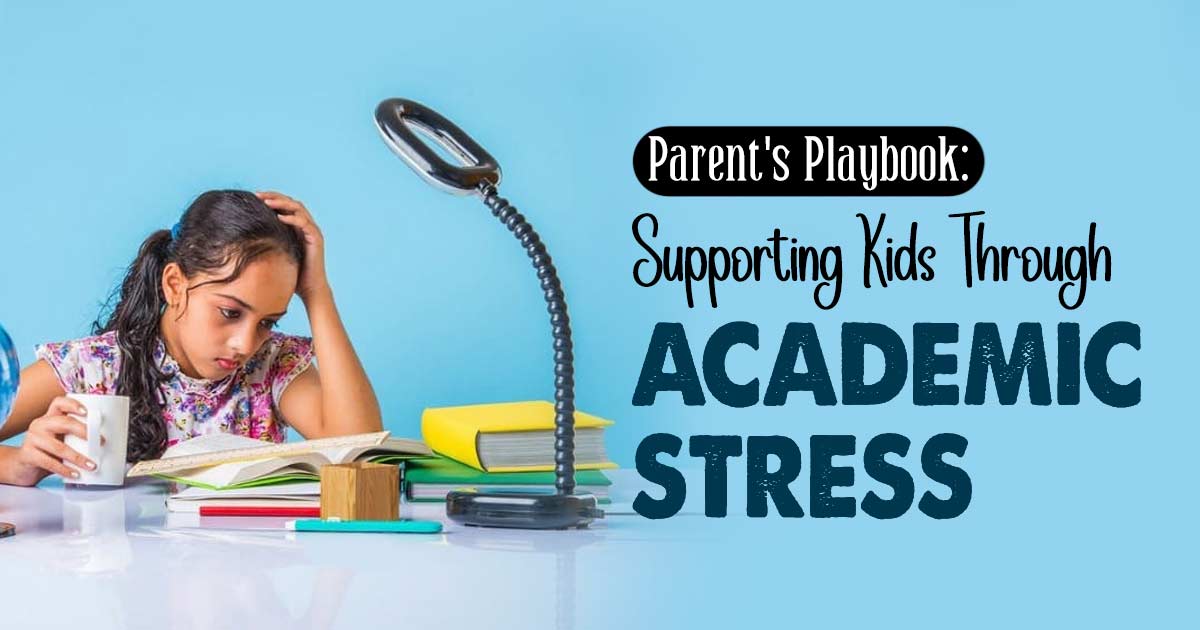As parents, we all want the best for our children, and a significant part of that involves their academic success. However, in our pursuit of excellence, we sometimes inadvertently expose our children to academic stress. Academic stress in children is a pressing concern that affects students of all ages.
Why Addressing Academic Stress In Children Is Important
Academic stress affects mental health in children. The intense pressure to perform well in school can lead to anxiety, depression, and burnout. These mental health issues can have long-lasting effects, potentially impacting their overall quality of life.
Stress, if left unchecked, can also manifest in physical symptoms such as headaches, stomachaches, and sleep disturbances. Over time, chronic stress can weaken the immune system, making your child more susceptible to illness.
Paradoxically, high levels of academic stress in children can hinder rather than enhance academic performance. It can lead to a decrease in concentration, memory, and problem-solving abilities, making it even more challenging for your child to succeed academically.
Spot The Signs Of Academic Stress In Children
One of the first signs of academic stress in your child may be changes in their behavior. Academic stress in children can manifest through various signs and symptoms. These may include sudden changes in behavior such as increased irritability, mood swings, or withdrawal from social activities, indicating emotional distress.
Physical symptoms like headaches, stomachaches, or frequent illnesses can also be telltale signs of academic stress, as can disruptions in sleep patterns such as difficulty falling asleep, nightmares, or restless nights. A notable decline in academic performance, coupled with a loss of enthusiasm for schoolwork, may signify the burden of excessive academic pressure. Furthermore, social isolation or distancing from friends and family can indicate that the child is grappling with the overwhelming expectations associated with their education.
Have A Conversation About Academic Stress
Initiating a thoughtful conversation with your child about academic stress is crucial. Create a safe and non-judgmental space where they feel comfortable sharing their feelings and concerns. Begin by asking open-ended questions, such as “How are you feeling about school lately?” or “Is there anything that’s been bothering you about your studies?”
Listen actively to their responses, without immediately offering solutions. Validate their feelings, reassuring them that it’s normal to experience stress and that you are there to support them. Chip in about how academic stress affects mental health and why it is crucial to address it. Having this open dialogue can help you better understand their struggles and collaboratively explore strategies to manage academic stress together.
Tips On How To Deal With Academic Stress In Children
Consider the following tips on how to deal with academic stress in children:
- Foster effective time management skills to help children balance schoolwork, extracurricular activities, and leisure time.
- Set realistic academic expectations, emphasizing personal growth over perfection.
- Encourage a healthy lifestyle with regular exercise, a balanced diet, and sufficient sleep.
- Promote a growth mindset, highlighting the importance of effort and resilience in the face of challenges.
- Create a dedicated study environment that minimizes distractions and enhances focus.
- Offer consistent emotional support and open communication to let children express their concerns.
- Teach relaxation techniques like deep breathing or mindfulness to help manage stress.
- Seek professional help when necessary, such as counseling or therapy, to address severe or persistent stress.
- Encourage breaks and leisure activities to prevent burnout and promote overall well-being.
- Foster a sense of self-worth independent of academic achievements, emphasizing that their happiness and mental health are paramount.
Addressing academic stress in children is of paramount importance for their mental and physical well-being, as well as their long-term academic success. By spotting the signs, having open and supportive conversations, and implementing effective strategies, you can help your child navigate the challenges of school while nurturing their resilience and overall development. Remember that your child’s happiness and well-being should always take precedence over academic achievement, and a balanced approach to education is key to their success in the long run.



